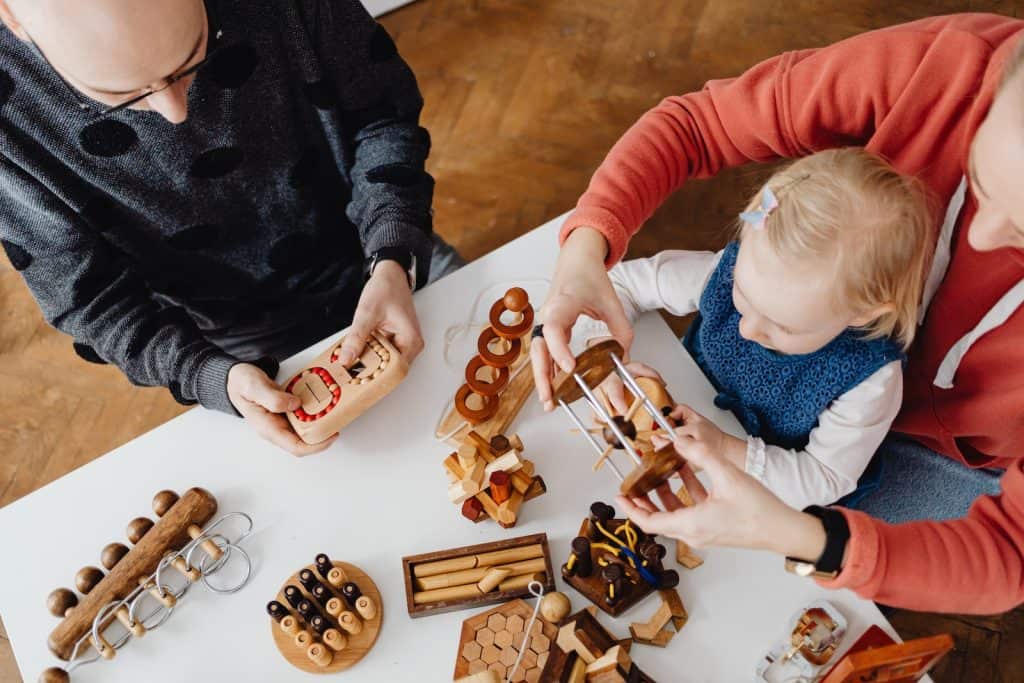Are you feeling overwhelmed and in need of a mental break? Look no further than mindfulness through puzzles. Engaging in activities like jigsaw puzzles can provide a sense of focus and calm, allowing you to be fully present in the moment while stimulating your brain simultaneously.
Puzzles, whether it’s a jigsaw puzzle or a mind-bending problem-solving task, offer numerous benefits for your well-being. As you sit down to tackle a beautiful picture or piece together intricate shapes, you’ll find yourself immersed in the task at hand. This level of concentration helps to distract from daily stressors and anxieties, creating a space for your mind to relax and recharge.
Completing a puzzle may sometimes be challenging, but the satisfaction that comes with putting the final puzzle piece into place is unparalleled. It gives you a sense of accomplishment and boosts your confidence in tackling other areas of life that may pose difficulty. Moreover, engaging in puzzles with friends or family can foster joyous conversations and create lasting memories.
The Benefits of Mindfulness for Mental Health

Mindfulness is a powerful practice that can be enhanced through engaging in puzzles, such as jigsaw puzzles. By incorporating mindfulness into puzzle-solving, you can experience a range of benefits for your mental health. Here are some reasons why mindfulness through puzzles can be beneficial:
- Improved Focus: When you engage in solving a puzzle, your attention becomes fully absorbed in the task at hand. This focused state allows you to cultivate mindfulness by bringing your mind to the present moment and reducing distractions from the outside world.
- Enhanced Problem-Solving Skills: Puzzles require logical thinking, pattern recognition, and problem-solving abilities. Engaging with puzzles regularly can help sharpen these cognitive skills and improve your ability to approach challenges in other areas of life.
- Reduced Stress and Anxiety: The act of working on a puzzle can have a calming effect on the mind. As you concentrate on fitting each puzzle piece together, it can help alleviate stress and anxiety by redirecting your focus away from worrisome thoughts.
- Promotes Mindfulness Practice: Mindfulness involves being fully aware and present in the current moment without judgment. Solving puzzles encourages this state of mindfulness as you immerse yourself in the process of finding matching shapes or completing an intricate picture.
- Sense of Accomplishment: Completing a puzzle provides a sense of achievement and satisfaction. This feeling positively impacts mood and boosts self-esteem, contributing to overall well-being.
- Opportunity for Family Bonding: Puzzles offer an ideal opportunity for quality time with family members or friends as you work together towards a common goal. This shared experience fosters connections, promotes communication, and enhances relationships.
- Stimulates Creativity: Puzzles often feature beautiful pictures or artwork that engages your visual senses and stimulates creativity. Appreciating the details within each puzzle piece can inspire new ideas and perspectives.
- Promotes Relaxation: Engaging in puzzles can be a relaxing activity that allows you to unwind and decompress. The repetitive nature of fitting puzzle pieces together, combined with slow breathing and reflection, can induce a state of calmness and peace.
- Boosts Cognitive Function: Regular engagement with puzzles has been linked to improvements in memory, cognition, and attention span. These benefits extend beyond the realm of puzzle-solving and can positively impact other areas of cognitive function as well.
By incorporating mindfulness into your puzzle-solving routine, you can reap these benefits for your mental health while enjoying the fun and challenge that puzzles provide.
Tips for Incorporating Puzzles into Your Mindfulness Routine

When it comes to practicing mindfulness, puzzles can be a valuable tool to help you focus your mind, relax, and stay present in the moment. Whether you prefer jigsaw puzzles, brain-teasers, or other types of puzzles, incorporating them into your mindfulness routine can provide numerous benefits for your mental well-being.
Here are some tips to help you seamlessly integrate puzzles into your mindfulness practice:
- Choose the Right Puzzle: Select a puzzle that aligns with your interests and preferences. It could be a jigsaw puzzle featuring a beautiful picture or a challenging brain-teaser that stimulates problem-solving skills. The key is to choose something that captures your attention and brings you joy.
- Set Aside Dedicated Time: Schedule specific moments in your day when you can sit down and engage with a puzzle without distractions. This dedicated time allows you to fully immerse yourself in the task at hand and experience the calming effects of focusing on one thing at a time.
- Embrace the Process: Approach the puzzle with a sense of curiosity and openness. Rather than rushing to complete it, focus on each individual piece or challenge as it arises. By embracing the process, you can cultivate patience and learn to appreciate the journey rather than solely aiming for completion.
- Practice Mindful Breathing: As you work on the puzzle, pay attention to your breath. Take slow, deep breaths as you engage with each piece or solve each problem. This mindful breathing technique helps anchor you in the present moment and enhances relaxation.
- Notice Sensations: Pay close attention to how solving the puzzle feels physically and mentally. Observe any tension or release in your muscles as well as any emotions that arise during the process. Being aware of these sensations adds an extra layer of mindfulness to your experience.
- Appreciate Small Achievements: Celebrate every small victory along the way – whether it’s finding the right puzzle piece or solving a particularly challenging section. Acknowledging these achievements boosts your confidence and motivation, creating a positive mindset.
- Engage in Conversations: Puzzles can be a great way to connect with others. Invite friends or family members to join you in solving the puzzle, fostering meaningful conversations and bonding experiences. Sharing the joy of puzzle-solving can enhance both your mindfulness practice and your relationships.
Remember, incorporating puzzles into your mindfulness routine is about more than just completing a task. It’s an opportunity to slow down, engage your brain simultaneously with problem-solving skills, and cultivate a sense of calm and focus in the present moment. So grab that puzzle, find a quiet space, and let yourself get lost in its captivating world of shapes and colors.

